When it comes to hardwood floor refinishing, water based vs. oil based polyurethane floor finish is a very popular topic! The type of floor finish you select is a crucial decision that effects much more than just the appearance of your hardwood floors.
In order to make an informed decision on water based vs oil based floor finish, it’s important to fully understand the advantages and disadvantages for each. I’m no professional, but my husband and I refinished our own hardwood floors and learned a lot throughout the process! Check out our beginner’s guide here! This post highlights the main differences so you can determine which finish is best tailored to your needs and preferences.
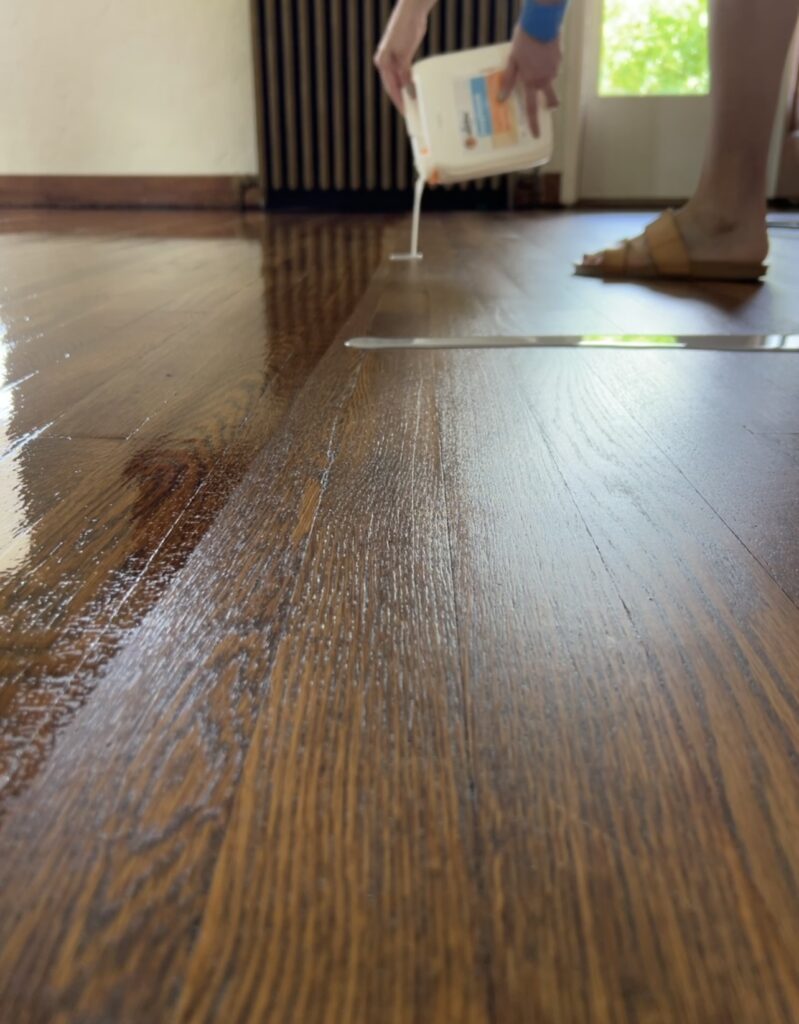
Disclaimer: This post contains affiliate links. This means, if you purchase something from a link I provided, I will receive a small commission. This is at no extra cost to you! Thank you so much for the support!
What is Polyurethane?
Polyurethane is a synthetic resin and one of the most versatile polymers available today. It is used across multiple industries due to its flexibility, durability, and resistance to abrasion.
Polyurethane is a popular choice in the context of floor finishes with hardwood flooring because it creates a hard protective layer over the wood, safeguarding it from scratches, spills, and other forms of wear and tear. This finish not only extends the life of hardwood floors by giving them a coat of armor, but it also enhances their appearance by adding a smooth glossy or satin sheen. The two main types of polyurethane finishes are water-based and oil-based, each having their own set of characteristics.
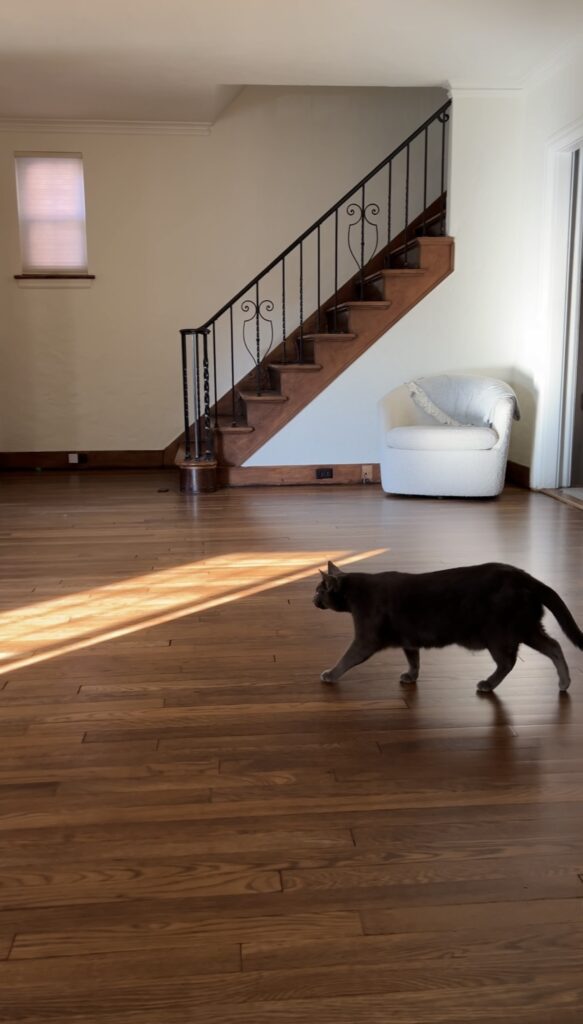
Water-Based Polyurethane Floor Finishes: Pros and Cons
Pros:
- Quick Drying Time: Water-based polyurethane dries much faster than its oil-based counterparts. You can usually apply a second coat within a few hours, and the floor is ready to walk on within a day.
- Low Odor: This type of polyurethane emits less odor during application, making it more suitable for indoor use without significant ventilation.
- Non-Yellowing: Water-based polyurethane remains clear over time, which means it won’t alter the color of your floor as it ages.
- Easy Cleanup: Tools and spills can be easily cleaned up with soap and water.
- Environmental benefits: Water-based polyurethane contains fewer volatile organic compounds. VOCs are chemicals that evaporate into the air and can cause air pollution and health problems.
Cons:
- Less Durable: While technology has improved the durability of water-based alternatives, they’re generally considered less resilient than oil-based finishes.
- More Expensive: Water-based polyurethane typically costs more than oil-based polyurethane.
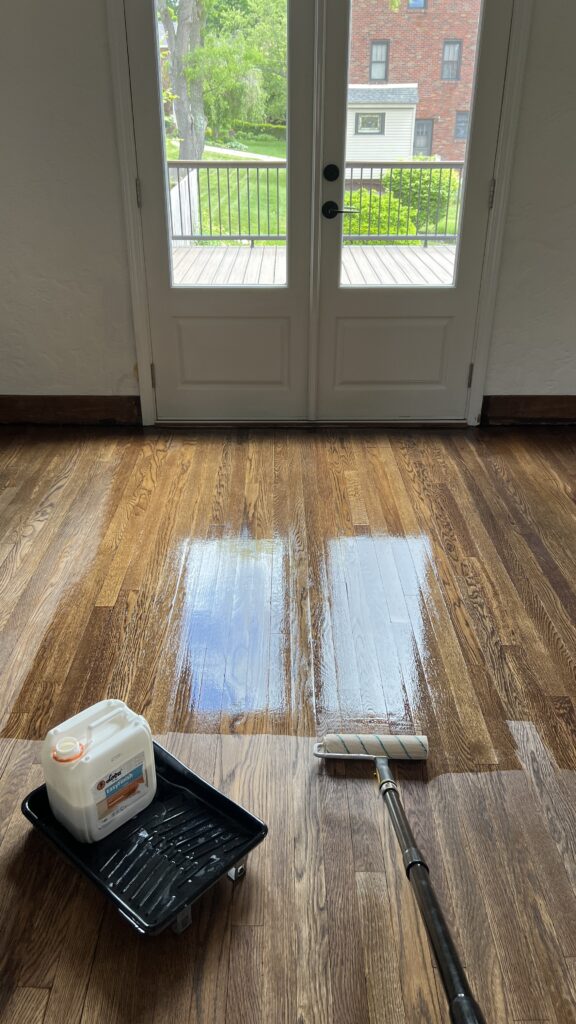
Oil-Based Polyurethane Floor Finish: Pros and Cons
Pros:
- Durability: Oil-based polyurethane is renowned for its toughness and resistance to scratches, making it ideal for high traffic areas.
- Rich Finish: It adds a warm, amber tint to wood, enhancing the natural beauty of the grain.
- Cost-Effective: Generally less expensive than water-based varieties, oil-based polyurethane offers a budget-friendly option without compromising on protection.
Cons:
- Longer Drying Times: Oil-based finishes take longer to dry, often requiring 24 hours or more between coats, and several days before the floor can be used.
- High VOC: Applying oil-based polyurethane releases dangerous fumes with a harsh odor. This can be overwhelming without proper ventilation.
- Yellowing Over Time: This type of polyurethane tends to yellow as it ages, which might not be desirable for all wood types or decor styles.
- Cleanup: Requires mineral spirits or paint thinner for cleanup, which can be more cumbersome and requires careful handling.
Which Hardwood Polyurethane Floor Finish is Best for You?
Determining the best hardwood floor type finish option for you depends on several factors, including the level of traffic in your home, the desired maintenance level, and the aesthetic appeal you aim to achieve.
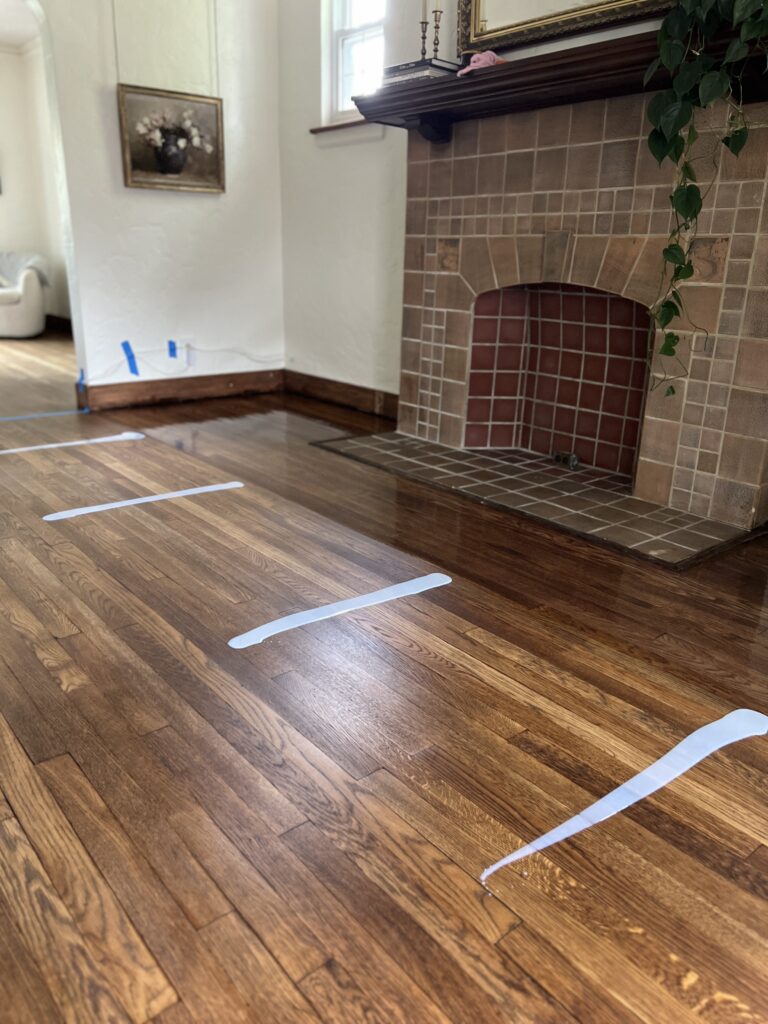
Water-based polyurethane offers a quick-drying, low-odor solution with a clear finish that won’t yellow over time. It’s ideal for light species of wood and spaces where minimal disruption is preferred. Oil-based polyurethane, on the other hand, is renowned for its durability and rich amber hue. This can enhance the natural beauty of wood, suited for high-traffic areas and those desiring a traditional look.
Assessing these aspects alongside your personal preferences and lifestyle needs will guide you to the best choice for your home. To determine which is best for you, consider the following:
What is the pricing difference between oil-based and water-based finishes?
The pricing difference between oil-based and water-based finishes generally hinges on the fact that water-based finishes tend to be more expensive than oil-based finishes. This disparity is due to several factors, including the technology and materials used in water-based products that contribute to their faster drying times, lower odor, and less environmental impact.
Water-based polyurethane uses advanced chemical formulations to achieve durability and clarity, which can increase production costs. These finishes are also known for their environmental friendliness and health benefits, such as lower VOC content, making them a safer choice for indoor air quality. These advantages often come with a higher price tag.
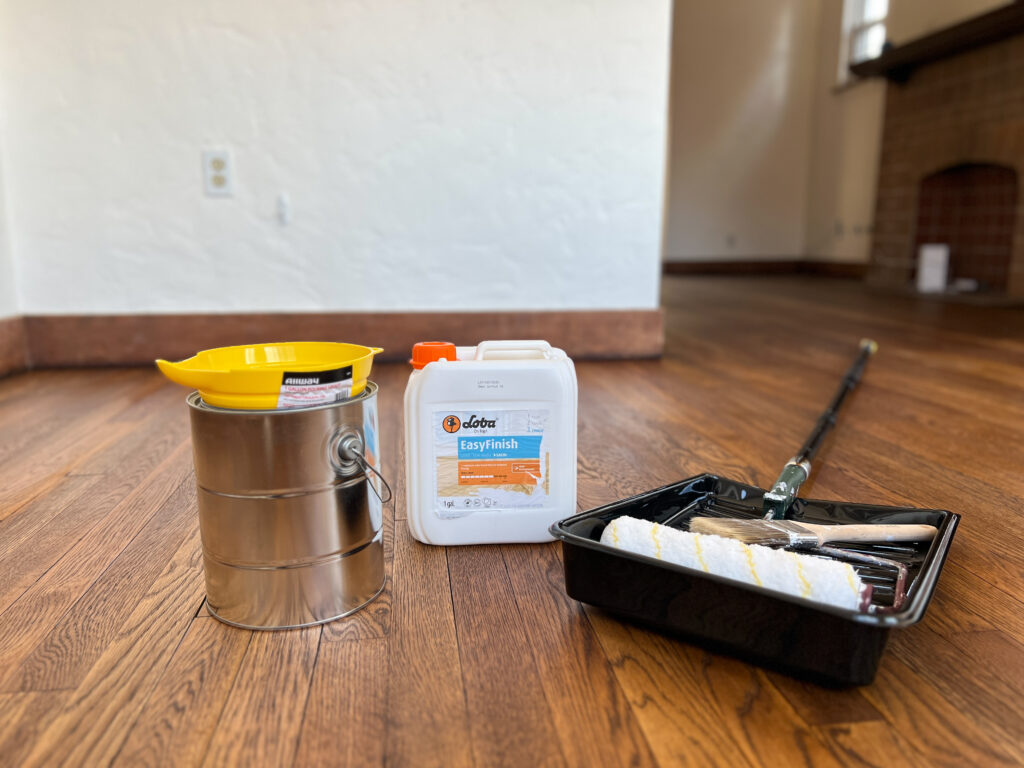
Oil-based polyurethanes, while offering a durable and attractive finish, use more traditional technology and materials, resulting in lower production costs. However, its longer drying times, strong odors, and higher VOC content can be drawbacks for some users.
The exact price difference can vary depending on the brand, quality, and quantity of the finish being purchased. It’s always a good idea to compare prices from different manufacturers and consider the total cost, including any additional expenses for application and ventilation requirements when deciding between water-based and oil-based finishes for your hardwood floors.
What is the average drying time for floor finishes?
The average drying time for floor finishes varies significantly between water-based and oil-based polyurethane products. Here’s a general overview:
Water-Based Polyurethane:
- Dry to the Touch: Within 1 to 2 hours
- Recoat Time: Usually about 2-4 hours, depending on the product and environmental conditions
- Light Use: Floors can be lightly walked on within 24 hours
- Fully Cure: Typically takes about 7 days to reach maximum hardness
Oil-Based Polyurethane:
- Dry Time: Within 6 to 10 hours.
- Recoat Time: Usually about 24 hours, depending on the product and environmental conditions
- Light Use: Floors can be lightly walked on within about 48 hours
- Fully Cure: Typically takes about 30 days to reach maximum hardness
Temperature, humidity, and ventilation can affect these times. Lower temperatures and higher humidity levels can significantly extend drying and curing times for both types of finishes. Always check the manufacturer’s instructions for the specific product you’re using, as there can be variability between different brands and formulations. Proper ventilation is also crucial to ensure the fastest and safest drying process.
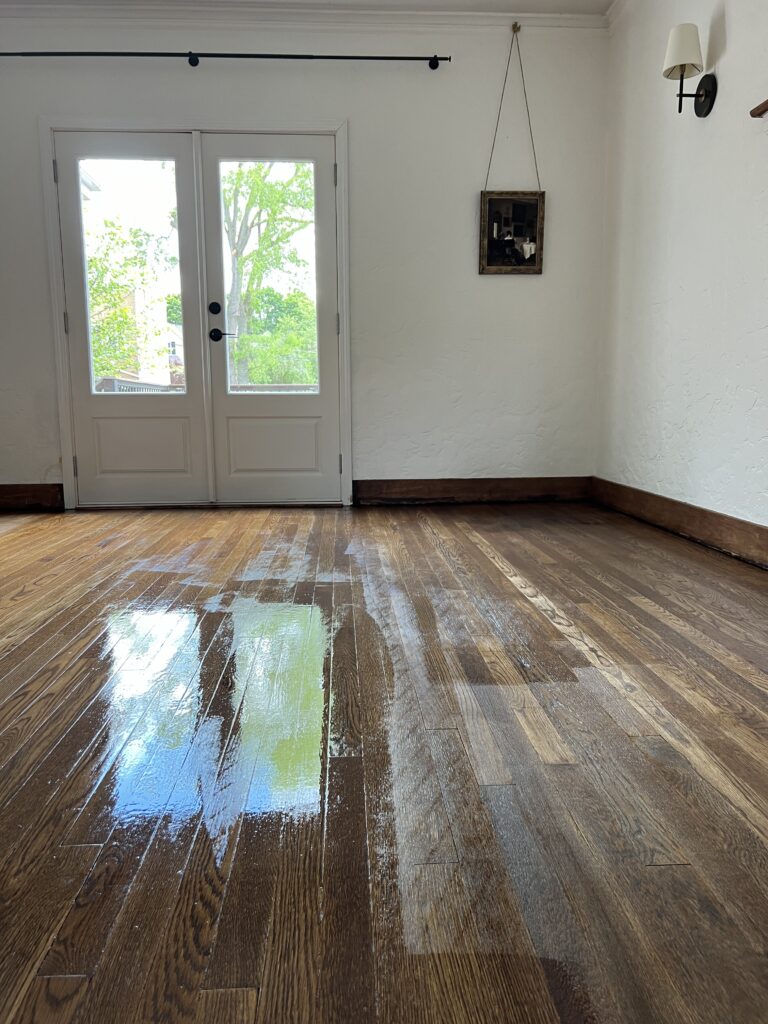
How does the appearance of oil and water-based hardwood finishes differ?
Choosing the best type of finish for your hardwood floors often comes down to your situation and a matter of taste regarding the final appearance of the wood floors.
If you’re seeking a traditional, warm look, you might prefer oil-based polyurethane. If you’re aiming for a more natural look and contemporary feel, maybe opt for the water-based finishes. Water-based polyurethane resists yellow tones over time, which means the wood’s appearance will remain consistent without the warm, amber shift associated with oil poly. Remember that oil-based polyurethane may continue to amber over time, further darkening the wood. This effect can be desirable in some settings but might not be suitable for all aesthetic preferences.
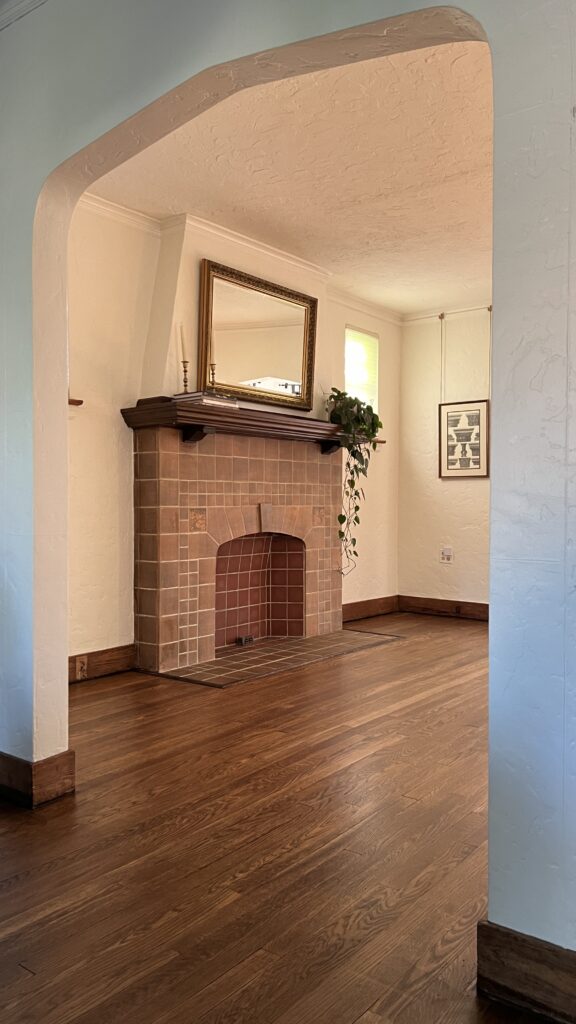
How sensitive are you to odors and solvents?
When deciding between the two different wood finishes for your hardwood floors, your sensitivity to odors plays a significant role. Oil-based products emit a strong odor due to the solvents they contain. These noxious fumes can be overpowering and linger for days, making them less ideal for those sensitive to smells or with limited ventilation options.
Water-based finishes have a much lower odor level and dry faster. This makes it a more comfortable option for individuals sensitive to strong odors or working in spaces that need to be occupied shortly after application. Thus, if minimizing exposure to potent smells is a priority for you, water-based finishes are likely the more suitable choice.
Both water-based and oil-based polyurethane finishes offer effective protection for hardwood floors, but they cater to different needs, aesthetics, and budgets. By considering the factors unique to your situation, you can choose the right type of finish to ensure your floors look beautiful and last for years to come.
What polyurethane floor finish we chose and why
As you now know, there’s pros to both water based and oil based polyurethane floor finishes, but we decided to go with a water-based floor finish!
When it comes to aesthetics, I actually prefer the warm, traditional look of an oil-based finish and there’s no arguing that it’s the most durable option. But even still, the cons outweighed the pros for us. Since we refinished our hardwood floors on our own and were living in the house during the process, the fumes were the most important factor.
A water-based polyurethane was the best option due to the lower VOCs and fast drying time. Since water-based products are historically not as durable as it’s oil-based counterparts, it’s important to use quality products. We spent a little extra to go with a quality water based floor finish. Click here for the link! The floor finishes you’ll find at Home Depot or Lowes will be a thinner product that’s more conducive to surface scratching, so I’d recommend investing a little more for a thicker poly!
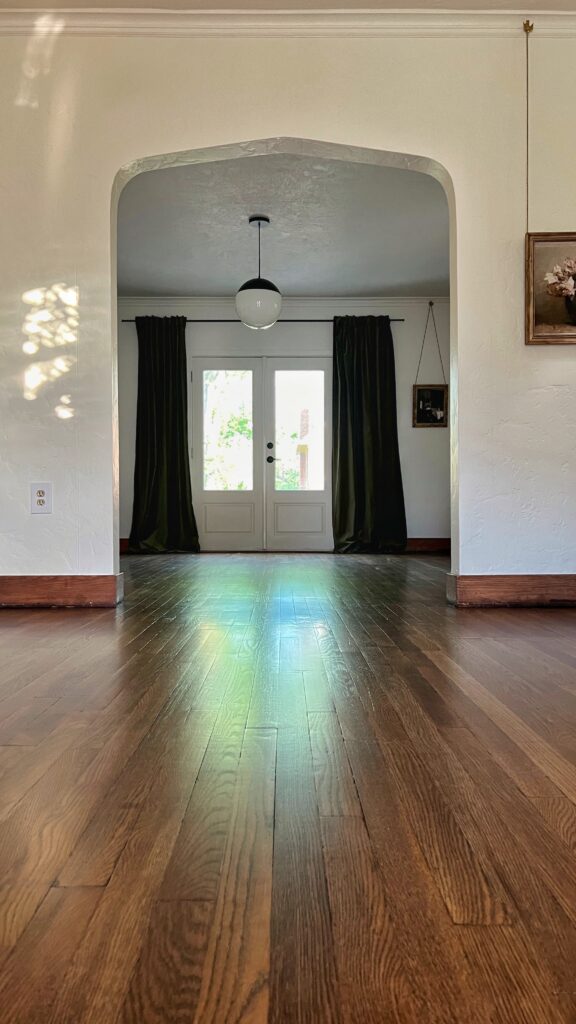
We applied three coats of water-based polyurethane in a satin finish and we’re so pleased with how our floors came out. We’re very proud of them!! So far they’ve held up great too!
How to apply water based polyurethane to hardwood floors
If you decide to go with water-based floor finish and apply it yourself, I have both a blog post (linked here!) and YouTube video sharing that entire process. We actually used a water-based poly over an oil-based stain too- yes, you can do that!
This video includes tips for applying water-based polyurethane, FAQ, and views of our refinished hardwood floors before and after 🙂
I hope you find this post on water based vs oil based polyurethane floor finish helpful!! Please let me know if you have any additional questions. I’m always happy to help!
Elisha